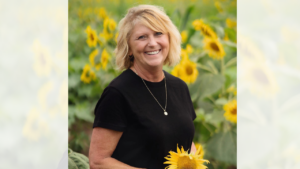Domestic violence, a pervasive issue that shatters lives and families, often remains hidden behind closed doors. This insidious form of abuse, encompassing physical, emotional, sexual, and psychological harm, affects individuals of all backgrounds and socioeconomic statuses. It’s time to break the silence and shed light on this critical issue.
Understanding Domestic Violence
Family Crisis Centers (FCC) of Iowa is an agency that works with victims of domestic abuse, homicide, and other violent crimes. Jill A., a Victim Advocate, says domestic violence is a complex issue with far-reaching consequences.
“Domestic violence is a pattern of abusive behaviors within an intimate relationship. This can include physical, emotional, psychological, sexual, and financial abuse. It’s all aimed at establishing and maintaining control over the victim.”
Why do victims return to their abusers or stay with their abusers?
Jill says there are many reasons why victims return to an abusive relationship.
“The reason are unique to each victim. Fear is a major factor. Leaving is actually the most dangerous time for a victim because the abuser begins to feel they are losing control over the victim. The abuser may lash out and become more violent and may even threaten the victim’s life or their family or threaten to take the kids away if they leave. If they were to separate, the victim may be afraid for the abuser to be alone with the kids. Another reason can be low self-esteem or the victim feeling like they don’t have any other options. Some victims won’t leave because of their culture or religious beliefs. The victim may think that abuse is normal. They don’t know what a healthy relationship looks like. It’s because of the desire for things to be the way they used to be before the abuse started. And then some people lack the support they need or the financial resources to leave.”
Is it possible that abusers can change their behavior? Jill says rarely.
“We all want to believe that someone we love will change or things will go back to the way they were when we first met them. And it takes time, motivation, professional help, and a lot of willingness to change. And that’s why, statistically, it is very rare for an abuser to change their behaviors.”
Can men be victims of domestic violence?
“I think there are a lot of people who think that it can’t be that way. But anyone can be a victim. And statistics show that one in four men will suffer some type of intimate partner violence in their lifetime.”
What are the implications of domestic violence?
The impact of domestic violence extends far beyond the physical and emotional scars. Victims may suffer from physical injuries, emotional trauma like depression, anxiety, low self-esteem, and post-traumatic stress disorder (PTSD), economic hardships and social isolation.
Family Crisis Center can help victims of domestic abuse.
Jill notes all of the services offered by FCC are 100% free and confidential.
“Our main goal is to ensure the safety of the victim and to give them options. We do this by helping to file protection orders, support and advocacy at court hearings, and filing crime victim compensation applications. We do safety planning. FCC provides individual crisis counseling where we can help victims explore their options and provide emotional support. We also do child advocacy.”
The FCC can connect victims with community resources.
“We can provide transportation to a domestic violence shelter. Our housing program assists victims in finding safe and affordable housing. We offer financial assistance with a security deposit and rent for a limited period of time. And then we provide ongoing support to help maintain that housing and independence.”
Breaking the Cycle: Seeking Help
If you or someone you know is experiencing domestic violence, it’s essential to seek help. Here are some steps you can take:
- Reach Out to a Trusted Friend or Family Member
- Contact a Domestic Violence Hotline – 1-800-382-5603
- Contact the FCC or similar organization to address the emotional impact of abuse
- Create a Safety Plan for escaping the abusive situation and ensuring your safety
- Seek Legal Assistance to understand your rights and options
Raising Awareness and Promoting Change
How do residents of Denison and Crawford County contact Family Crisis Centers?
“FCC counselors are available 24-7, including weekends and holidays. The number is 1-800-382-5603, or you can text Iowa Help to 20121. FCC has a website (www.familycrisiscenters.org) where you can find resources. For those who would like to support the work of the FCC, they can also go to our website to volunteer or donate.” By breaking the silence and working together, we can create a safer and more compassionate society where domestic violence is no longer tolerated.


